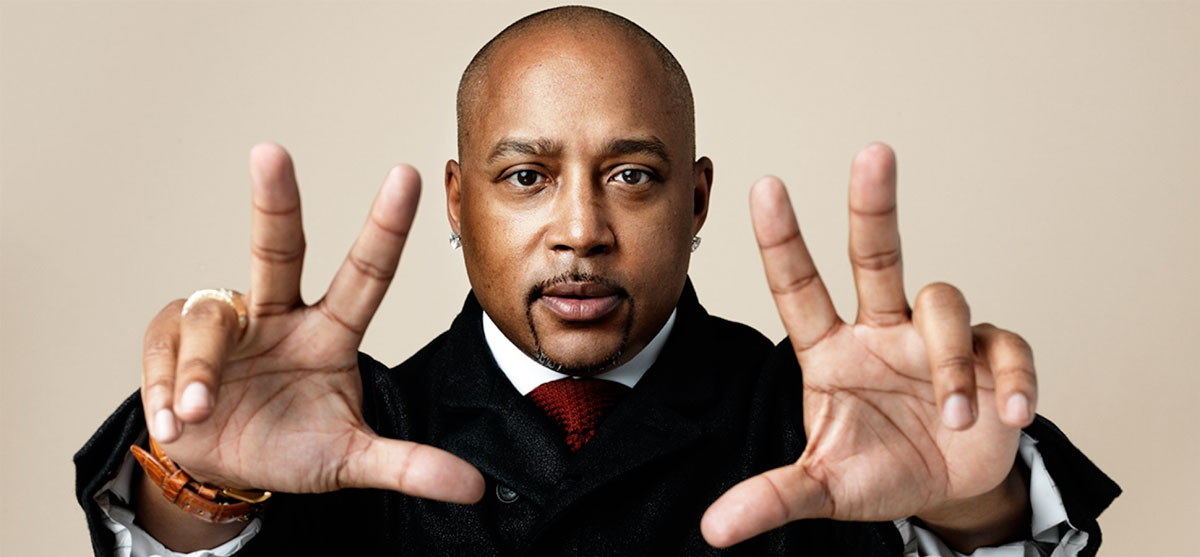
I launched FUBU in my early twenties. As many of you know, I started out sewing hats in the living room of my mom’s house with the money I made working at Red Lobster and selling them on the street corner. I managed to turn that into a $4 billion clothing empire. I am not bragging when I tell this very familiar story; I just want to remind you that anything is possible and take the time to carefully illustrate some of the steps that got me from Point A to B. It wasn’t blind luck, and it certainly didn’t happen overnight.
For those of you who have launched successful brands of your own (of any scope and in any industry), then you know the tremendous amount of blood, sweat, and tears that go into building a brand. You have to live and breathe it. You have to represent it at every turn and constantly be thinking about how you can further it. It’s a painstaking process, but when it does finally take off, you feel immense pride and ownership in seeing your baby grow and evolve into something beyond you, something bigger with a life of its own.

As a Jetset reader, odds are you have already scaled to great heights in your field. Every true entrepreneur has tales of success and failure, lessons learned and crises overcame. And when Jetset told me they were running their first-ever Entrepreneur Issue — aimed at honoring and educating entrepreneurs both young and old — they asked me what I wanted to write about, what wisdom I had to share on the subject. My first thought was to offer five rules for those launching a brand for the first or fifteenth time. So whether you are young and hungry like I was, or far more seasoned and simply looking to break into a new field, here are a few things I wish I would have known back when I was that kid in Queens with dreams of a brand of my own….
Invest in Financial Intelligence
In my last Jetset article, I wrote about the importance of educating our new workforce for the jobs of tomorrow. I talked about the antiquated, inept nature of our education system and lamented the fact that people today are not taught basic financial intelligence. Kids come out of college with insane credit card debt. They are brought up in the culture of “you need money to make money.” But whether you are operating a billion dollar business or launching a clothing line or simply managing your portfolio, you need to have sound financial intelligence.

This extends beyond going to business school and getting an MBA. Now despite the fact that I never went to college, I will never disparage higher education. But I will say that your education doesn’t stop when you grab that diploma. If you are a real entrepreneur, then your business education is a life-long work-in-progress. It never ceases. For those trying to launch a new brand (or any business venture), I cannot stress the importance of finding knowledgeable people in your field and doing the proper market research. Conduct cost analysis, interview people, study similar companies and market trends. The better your financial education, the better your brand. Period. And be smart with your money. Never let that financial education go to waste.
Take Affordable Steps
 Don’t go out and try to build Rome in a day. If you have ten pieces of product that you can’t sell, then raising $10,000,000 to have a million pieces of crap just puts you in a far deeper hole. You may think you are doing great but you are really just leveraging your brand to death. One of the top reasons a lot of new entrepreneurs fail is not because they lack funding — just look at Silicon Valley, where thousands of VCs out there are just dying to inject nascent businesses with cash — it’s actually the opposite. Many businesses fail because they are overfunded.
Don’t go out and try to build Rome in a day. If you have ten pieces of product that you can’t sell, then raising $10,000,000 to have a million pieces of crap just puts you in a far deeper hole. You may think you are doing great but you are really just leveraging your brand to death. One of the top reasons a lot of new entrepreneurs fail is not because they lack funding — just look at Silicon Valley, where thousands of VCs out there are just dying to inject nascent businesses with cash — it’s actually the opposite. Many businesses fail because they are overfunded.
If someone was starting a company and they went out and borrowed ten times what they are worth and mortgaged their house to fund it, I would tell them they are being extremely foolish. Same for the man with $100 million in assets who seeks a billion dollars in funding to launch a brand. No matter where you are at, take affordable steps. Don’t overextend yourself or ever allow yourself to be dug into a hole. For six years while I was launching FUBU I was still taking shifts at Red Lobster. Why? Because it gave me medical benefits, kept the lights on, and kept me fed (perhaps too well). Now I was only making about $35,000 a year, but over the course of six years, that added up to over $200,000. That’s over $200,000 that I didn’t have to borrow, $200,000 of debt that I didn’t have hamstringing my fledgling business. Never lose that mentality.
Rethink OPM

Everyone in business is familiar with the concept of OPM, or “Other People’s Money.” Countless billionaires built their entire careers off of OPM. (Heck, our new president has often bragged about his OPM prowess.) But one of my mother’s greatest contributions to my financial education (and there were many), was getting me to think about the “M” in OPM as something beyond money. Other People’s Manufacturing. Other People’s Mentoring. Other People’s Manpower. Other People’s Mindpower…the list goes on. Regardless of how much capital you have, you need to constantly be leveraging. You need to constantly be thinking of ways to utilize other people’s assets.
When I got my first $50,000 order, I was ecstatic….until I realized I didn’t have the money to actually fulfill it. Determined to find a solution, I went to the printer who used to charge me $6.25 a pop to screen print a shirt. I told him to instead charge me $7.50 per shirt, ship the shirts directly to the retailer, and in turn, the retailer would pay them. Why did it work? Because it was Other People’s Manufacturing. It was a win-win-win scenario. The retailer got to do business with someone they knew had an established business and could trust (not some kid in a busted Nissan), the printer got a new retail contact they could possibly exploit later (and an extra $1.25 a shirt), and I got paid without lifting a finger or (most importantly) giving up a single point of precious equity. Always be thinking about how you can utilize other people’s assets to benefit all parties.
Find a Way to Catch Fire
When I was trying to make FUBU grow, I knew I needed the proper spokespeople to help it reach the next step. The biggest rapper on the planet at the time was LL Cool J, who had just signed a multi-million-dollar deal with The Gap. Lucky for me LL was from Queens and still lived there. We knew where he lived, so my crew and I camped out at LL’s house for hours, determined to talk to him. When he finally came outside, we showed him the clothes. LL was a businessman, he had financial education, so he was reluctant to wear a product for free when he was getting millions to wear another. But I convinced him that wearing FUBU would prove he still represented where he came from, still hadn’t forgotten his roots. He reluctantly took some clothes.

A little while later, The Gap aired a commercial featuring LL rapping while wearing nothing but Gap clothes…that is nothing except the FUBU hat they inexplicably let him wear (and mention by name when he spelled out the brand’s acronym in his rap). After that, our orders went through the roof. The next year, we cleared $300 million in sales. In one master stroke, my brand had caught fire. My advice? Find your LL. Find that one person or demographic or venue that is going to best help drive your brand into the stratosphere (and at minimal cost). If you are launching a clothing company, you could borrow or spend a ton of capital on a massive marketing budget…or you could just mail one article of clothing to 100 demographically relevant celebrities with a hand-written note. If just one of them wears it on their Instagram, you just did more for your brand than a million dollar marketing campaign ever could.
Know Your Brand…And Protect it at All Costs
 Your customers are part of your company’s ecosystem. You must create trust with the people who buy your products and make them invest in you and your business. Their belief in what you do will result in returns beyond imagination. But never lose sight of who your audience is, what they want, and above all else, what your brand is. I knew FUBU to its core. I knew that LL was the perfect person to help it grow. If I could have gotten a hat on Steven Tyler, I would have probably said no, because, despite his legendary fame, he was not my brand. Never lose sight of your brand. Never lose sight of your core audience. Follow these steps and don’t be affraid to dream big.
Your customers are part of your company’s ecosystem. You must create trust with the people who buy your products and make them invest in you and your business. Their belief in what you do will result in returns beyond imagination. But never lose sight of who your audience is, what they want, and above all else, what your brand is. I knew FUBU to its core. I knew that LL was the perfect person to help it grow. If I could have gotten a hat on Steven Tyler, I would have probably said no, because, despite his legendary fame, he was not my brand. Never lose sight of your brand. Never lose sight of your core audience. Follow these steps and don’t be affraid to dream big.

